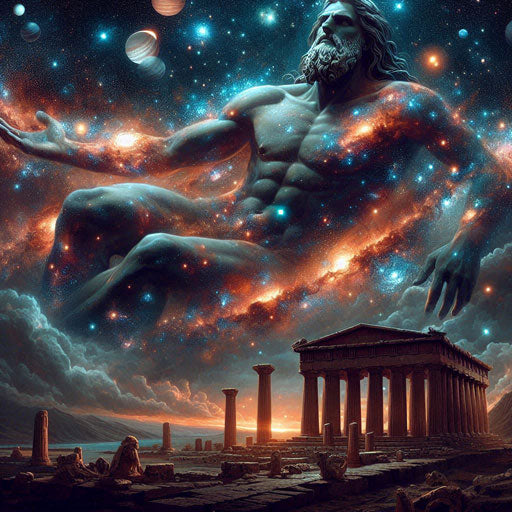Table of Contents
- Introduction
- The Origin of Uranus
- Uranus and Gaia: The Primal Couple
- The Offspring of Uranus
- The Downfall of Uranus
- Uranus in Myth and Culture
- Conclusion
Introduction
In the vast and intricate tapestry of Greek mythology, Uranus stands out as a primordial deity, embodying the sky and the heavens. As the father of the Titans and many other powerful beings, Uranus' influence is deeply embedded in the mythological narrative. This blog post explores the origins, significance, and legacy of Uranus in Greek mythology.
The Origin of Uranus
Uranus, or Ouranos, is one of the first primordial gods in Greek mythology. He personifies the sky and is often depicted as a celestial dome covering the Earth. Uranus emerged from the primordial chaos along with Gaia (Earth), with whom he would later mate to produce some of the most formidable beings in mythology.
Uranus and Gaia: The Primal Couple
Uranus and Gaia are considered the primal couple in Greek mythology. Their union is symbolic of the sky and earth coming together to create life. Together, they birthed the Titans, the Cyclopes, and the Hecatoncheires (Hundred-Handed Ones). This divine pairing set the stage for the mythological events that would shape the ancient world.

The Offspring of Uranus
Uranus and Gaia's offspring are some of the most powerful and well-known figures in Greek mythology:
- The Titans: The twelve Titans included Cronus, Rhea, Oceanus, Tethys, Hyperion, Theia, Coeus, Phoebe, Crius, Mnemosyne, Iapetus, and Themis.
- The Cyclopes: These were three giant beings with a single eye in the middle of their foreheads, known for their craftsmanship.
- The Hecatoncheires: Also known as the Hundred-Handed Ones, these giants had fifty heads and one hundred arms, representing the natural forces of earthquakes and storms.
The Downfall of Uranus
Uranus' reign was marked by tyranny, as he imprisoned many of his offspring in Tartarus, deep within the Earth. Gaia, distressed by the treatment of her children, conspired with her youngest son, Cronus, to overthrow Uranus. Cronus ambushed Uranus and castrated him, ending his rule. The blood from Uranus fell upon Gaia, giving rise to the Erinyes (Furies), the Giants, and the Meliae (ash tree nymphs).

Uranus in Myth and Culture
Despite his crucial role in the early cosmogony, Uranus is not prominently featured in later Greek mythology. However, his legacy is significant, as he is the progenitor of many important mythological figures. The story of Uranus' overthrow by Cronus is a recurring theme in mythology, symbolizing the cyclical nature of time and the inevitable transition of power.
Conclusion
Uranus, as the primordial sky deity, plays a foundational role in Greek mythology. His union with Gaia and the subsequent birth of the Titans and other beings set the stage for the rich tapestry of myths that followed. Understanding Uranus' story provides valuable insights into the ancient Greeks' perception of the cosmos and the divine order.
Interested in Greek mythology ? Visit our blog here


